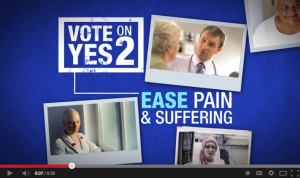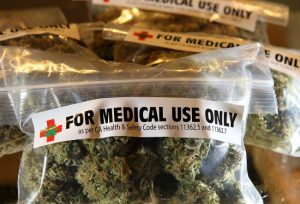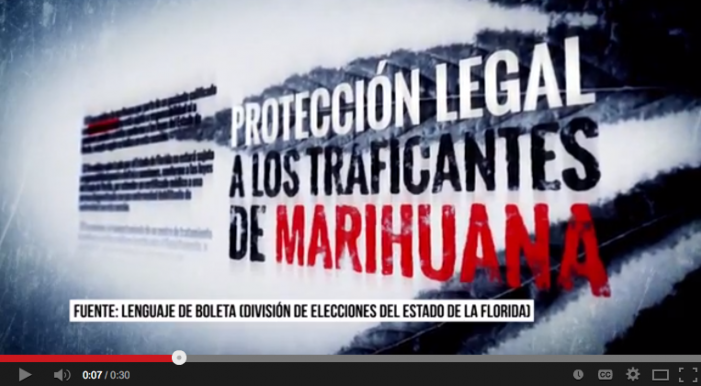(Continued from previous page)
The pro pot piece fights against its biggest attack, that it’s a “let’s all get high” free for all, by playing on our sympathy and saying the amendment “will mean that doctors can prescribe the medication they believe will best ease the pain and suffering of thousands of sick Floridians.
“Voting Yes on 2 mean s medical marijuana use under the strict supervision of a doctor, only for debilitating conditions and diseases, such as cancer and MS,” the narrator says. “Twenty three states now keep government and politicians out of the doctor-patient relationship, and it’s worked. Vote yes on 2 and trust our doctors, to do what’s best.”
s medical marijuana use under the strict supervision of a doctor, only for debilitating conditions and diseases, such as cancer and MS,” the narrator says. “Twenty three states now keep government and politicians out of the doctor-patient relationship, and it’s worked. Vote yes on 2 and trust our doctors, to do what’s best.”
It’s the first TV spot for United For Care, which advocates for the measure. But the organization’s director Ben Pollara has been debating the amendment against Correoso for weeks. Last week, they talked about their positions on the issue on WPLG’s Local 10’s This Week in South Florida last week.
Still, the opposition is the only side apparently reaching out to Hispanic voters with a new Spanish-language video ad released Monday.
In addition to the South Florida Cubans, Drug Free Florida hopes to appeal to the Hispanics along the I4 Corridor — mostly Puerto Rican Democrats — who have seen the effects of the drug trade on their island, he said.
Read related story: Poll indicates support is high for medical marijuana
While poll numbers have consistently shown support for this medical marijuana amendment — with most indicating that up to 69%, or 7 of 10 voters, still approve — that figure has gone down. At one point, advocates boasted an 80% approval rating. March polls had it at a comfortable 70. In a Survey USA poll of 683 Florida voters between Sept. 12 and Sept. 15th, that number again went down to 56%.
That’s the same percentage that said they would vote yes in an August poll by the Tampa Bay Times and University of Florida Bob Graham Center.
As a constitutional amendment, the ballot question needs a 60% mandate to pass.
“It’s not the slam dunk that previous polls suggested,” Christopher McCarty, director of the UF Survey Research Center was quoted as saying.
Correoso and others says the s lide is the result of education: As voters have become increasingly aware of the details in the measure, of the ballot language and the fact that it is a constitutional amendment, they tend to be less supportive. Correoso says there are too many questions unanswered — will there be pot-free zones where stores cannot set up, for instance — and gaping holes in the rushed ballot language, and no way to change it once the constitutional amendment is passed. He says the legislature should take it up as has been the path in the majority of states that legalized medical pot.
lide is the result of education: As voters have become increasingly aware of the details in the measure, of the ballot language and the fact that it is a constitutional amendment, they tend to be less supportive. Correoso says there are too many questions unanswered — will there be pot-free zones where stores cannot set up, for instance — and gaping holes in the rushed ballot language, and no way to change it once the constitutional amendment is passed. He says the legislature should take it up as has been the path in the majority of states that legalized medical pot.
Correoso has been on radio and several local TV programs and hopes that some of his arguments have helped nick the numbers down.
But in the statewide Hispanic community, there is still more support than in the general population, according to most polls. Even the Survey USA poll had Hispanics approving the measure with 59% of their vote.
Correoso says those numbers are not great representatives of the Hispanic voter bloc: “They’re not polling in Spanish.”
Pages: 1 2

